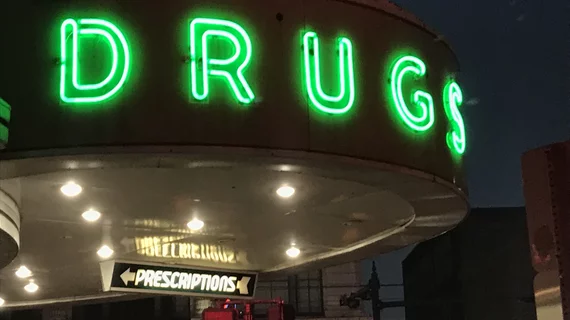DOJ sues Walgreens for allegedly filling ‘millions’ of illegal prescriptions
The U.S. Department of Justice (DOJ) is suing Walgreens, accusing the nationwide chain of pharmacies of filling "millions" of prescriptions illegally, including opioids and other controlled substances.
In a complaint filed in federal court in Illinois, the DOJ said Walgreens failed to follow legal requirements meant to ensure a prescription is filled for a legitimate medical purpose, ultimately failing to act as the “critical gatekeeper” to ensure drugs aren’t being diverted.
“These invalid prescriptions took a toll. In some particularly tragic instances, patients died after overdosing on opioids shortly after filling invalid prescriptions at Walgreens,” the court filing reads.
According to the DOJ, these illegal prescriptions date back to 2012 and are a result of corporate policies that encouraged pharmacists to ignore red flags, such as frequent prescribers who were likely operating pill mills.
“Walgreens systematically pressured its pharmacists to fill controlled-substance prescriptions quickly, without taking the time needed to confirm each prescription’s validity,” the DOJ argued. “Walgreens also fostered a corporate culture in which pharmacists who diligently observed their responsibility to verify the legitimacy of controlled-substance prescriptions were subject to reprimand.”
The DOJ added that Walgreens failed to deploy systems to safeguard against dispensing illegal prescriptions, despite competitors adopting them, which helped fuel the nation’s opioid crisis.
In response, Walgreens has filed its own countersuit, denying the allegations and accusing the federal government of failing to clarify the legal obligations of its pharmacies under provisions of the Controlled Substances Act.
Further, Walgreens accuses the DOJ and Drug Enforcement Administration (DEA) of failing to specify what actions are supposed to be taken in response to red flags from licensed prescribers who are legally allowed to distribute controlled substances.
CVS sued last year
A similar lawsuit was filed in December against CVS Health, accusing its pharmacies of unlawfully dispensing opioids and other controlled substances, in violation of the Controlled Substances Act and the False Claims Act. The DOJ claims CVS filled prescriptions lacking legitimate medical purposes, refilled them early, and disregarded red flags such as prescribing to patients using multiple dangerous substances, while prioritizing corporate profits over patient safety.
CVS denied the allegations.

